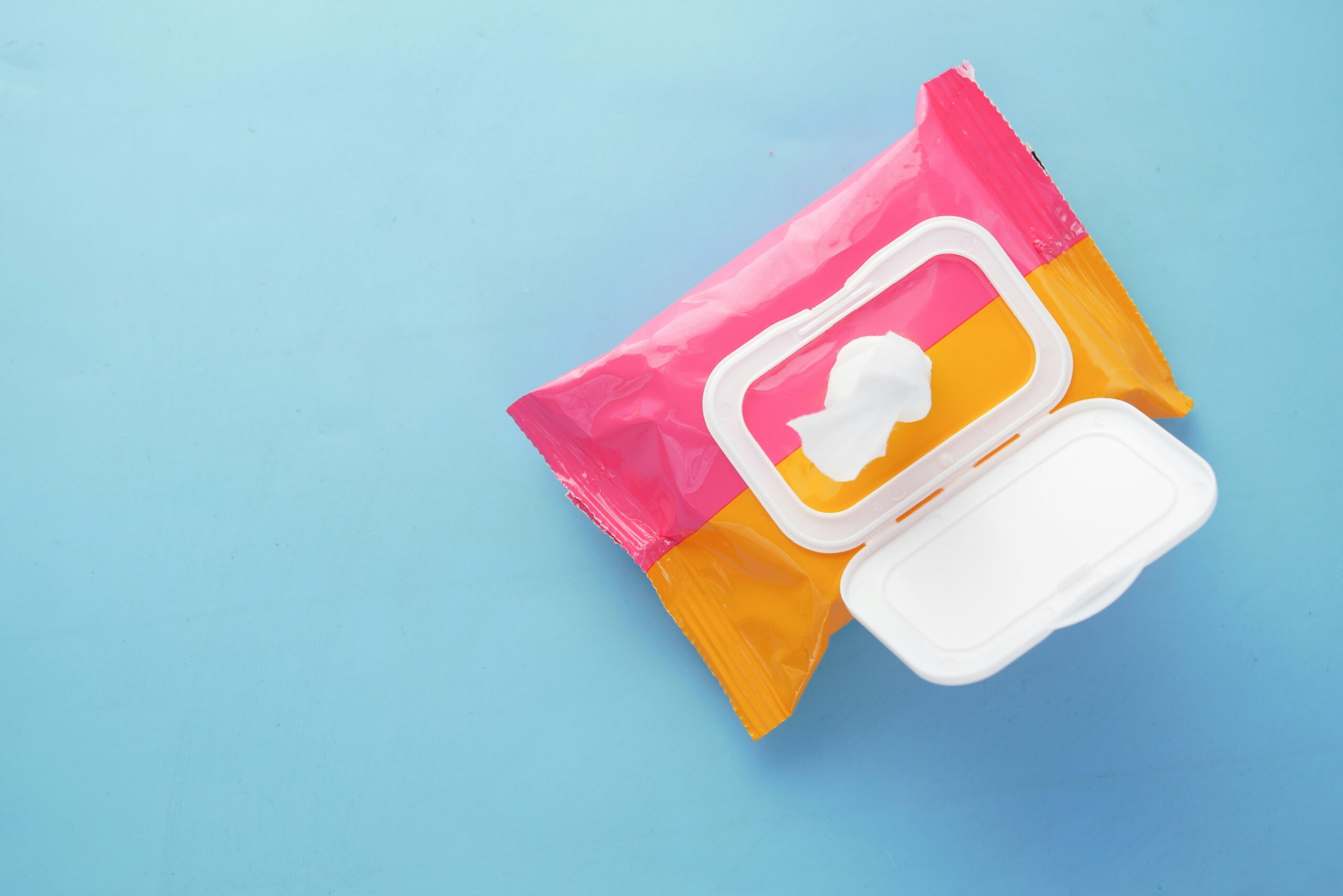Photo by Towfiqu Barbhuiya
A ban on the sale of wet wipes made of plastic has been signed into law in England, with the new rules coming into force in 2027 to bring the country into line with legislation across the rest of the UK.
Plastic wipes don’t disintegrate when flushed down the toilet, and when oil and fat congeal on them, so-called fatbergs form in sewers, which water companies say cost them £200 million a year to clear.
At Minworth Wastewater Treatment Works in the Midlands, the scale of the problem can be seen first-hand. The facility, which serves a population of more than two million people across Birmingham and the Black Country, removes 10 tonnes of wet wipes daily from sewage.
Grant Mitchell, Severn Trent’s head of blockages, described the situation as “a nightmare” whilst surveying a small mountain of wipes at the facility. “Wet wipes are a problem because they’re made to not break down like toilet paper,” he said. “So they stay in one piece, and they gather together with fat, oil, and grease from kitchens, congeal and create a fatberg which causes flooding.”
Fatbergs can become huge if blockages are not cleared. Last month, a massive stinking lump of wet wipes, fat and oil was removed from a west London sewer weighing 100 tonnes – the equivalent of eight double-decker buses. A specialist team took more than a month to break it down.
The market for wet wipes has been growing steadily for years. According to government figures, in 2023, 32 billion wipes were sold to UK consumers, of which about 12 billion contained plastic. If laid out flat, that’s enough plastic wipes to cover 2,200 football pitches.
Emma Hardy, the Minister for Water and Flooding, said of the ban: “It’s going to make a huge difference. I think people maybe underestimate the amount of problems that these wet wipes cause.”
However, whilst water industry sources welcomed the new legislation, they were quick to point out its limitations. UK companies will still be able to manufacture and export plastic wet wipes, and they will still be available for purchase from pharmacies both in person and online. Businesses like hotels will be allowed to buy the wipes without restrictions.
The medical profession successfully argued for an exemption from the wet wipe ban, arguing that non-plastic wipes absorb too much of the detergents and disinfectants impregnated in them, with potential consequences for patient safety.
Most wipes sold in the UK are now made of non-plastic materials, but the government and water companies say they should not be labelled as “flushable” because they can still cause blockages.
Daniel Jolly from the University of East Anglia has been researching how fast biodegradable wet wipes break down. In his laboratory, he simulates what a toilet flush does to a wipe. “This isn’t toilet paper,” he said as a wipe slowly broke apart into fibres. “Even though it’s the same basic materials, this is built completely differently and it’s much stronger.”
Jolly has been carrying out tests on the banks of the River Yare to see how quickly plastic-free wipes disintegrate. “It’s a period of most likely months to a year, or two years, depending on the environmental conditions that they’re in,” he said. “That’s much slower than toilet paper which is between weeks to several months, but much better than a plastic wipe which can last hundreds, even thousands of years in certain situations.”
Research commissioned by the government found that some non-plastic wipes failed tests on how fast they disintegrated, meaning they could still block sewers.
Until March 2024, water companies ran a certification scheme which gave the green light for some wipes to be put in the toilet, called “Fine to Flush”. But that was discontinued because of fears it was causing confusion among consumers and replaced with a new slogan “Bin the Wipe”.
Now the advice from the government and water companies is clear: only the three Ps – pee, paper and poo – should be put down the toilet.
A spokesperson for Water UK, the industry’s trade body, said: “Restricting the sale of wet wipes containing plastic is a step in the right direction. But we really need a ban on their manufacture and mandatory ‘do not flush’ labelling on all wet wipes.”
Some manufacturers who market “flushable” wipes told the BBC that they were in fact moist toilet tissues, but Water UK said it still viewed them as wet wipes so they shouldn’t be flushed.
Minister Hardy encouraged manufacturers to “show leadership on this right now” by providing labelling to inform the public that they need to bin wipes rather than flush them down toilets.
The wet wipe manufacturers contacted by the BBC said their non-plastic “flushable” wipes have been thoroughly tested and comply with all the rules.
